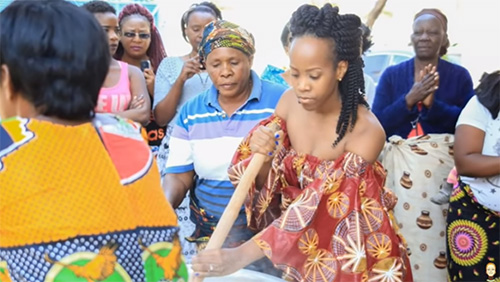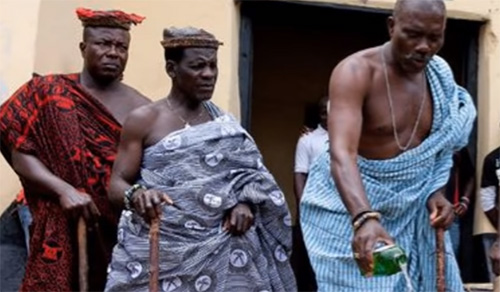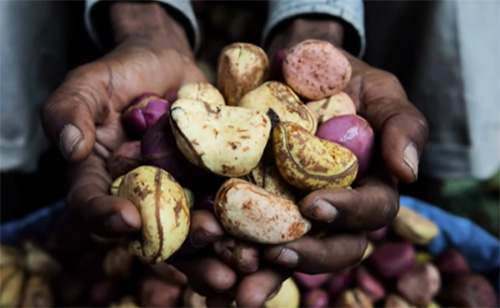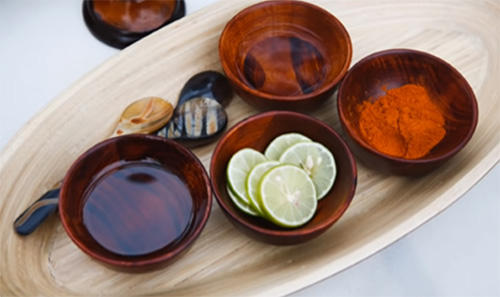 Most of the African traditions, in general, are very unique and different from anything people on other continents practice. And African wedding traditions and rituals are special as well. They are not only cheerful, bright, and eye-catching but also meaningful. A lot of African traditions honor the ancestors – such rituals are even more common than the ones honoring gods and nature. Here you are 5 exquisite wedding traditions practiced by Africans inside their countries and in the diaspora. If you have African roots, you might think about incorporating these customs into your own wedding ceremony.
Most of the African traditions, in general, are very unique and different from anything people on other continents practice. And African wedding traditions and rituals are special as well. They are not only cheerful, bright, and eye-catching but also meaningful. A lot of African traditions honor the ancestors – such rituals are even more common than the ones honoring gods and nature. Here you are 5 exquisite wedding traditions practiced by Africans inside their countries and in the diaspora. If you have African roots, you might think about incorporating these customs into your own wedding ceremony.
There are many popular African wedding traditions that African-Americans continually practice during wedding ceremonies. But we’ve chosen the most interesting, inherently African, and respectful of them. This is the top-5 African wedding traditions you can incorporate into your wedding.
There are hundreds, if not thousands, of African wedding traditions that occur even before the big day. Like the very elaborate system of gift-giving in particular African cultures. And also the things concerning the activities males have to do in order to gain the approval of the bride's family. But although they are bright and splendid, today they might not be as practical because the diaspora lives in a more urban setting. I mean it'd be kind of hard to purchase cattle for your soon-to-be bride.
But some of the customs can be maintained even in the modern world. And here they are.
5. Chilanga mulilo
Everyone likes food and, to be honest, with this first tradition coming at #5, African people in the diaspora have probably been doing this even before they knew it was African. This tradition is something simple. It is called “Chilanga mulilo” and it hails from the Bemba people of Zambia. The Bemba or Bantu people are from southern Africa. So if you happen to know you have some Bantu ancestry, this might be something you can incorporate.

The Chilanga mulilo is a tradition in which the bride's family takes different dishes from her own family and presents them to the groom's family, giving a sort of symbolic preview of what the groom will be eating when married. And so, ladies, this is a tremendous opportunity to show off and send a great message to your mother-in-law that her son will be well taken care of. And also that she can comfortably pass the torch on to you. Not only do you get to show off the unique dishes from your own family unit, but everybody gets to enjoy.
4. Money spray
In Nigeria, especially among Yoruba and Ebu cultures, the tradition of tossing money at the bride is called the “Money spray” and it's a celebrated part of the wedding ceremony. Typically, guests put bills on the bride's head and make it rain from there as she dances. The purpose of the money spray is to really help the couple build a solid foundation as they start their new life together.

The history of the money spray is very special because it's more modern African tradition than ancient. Even though the Nigerian version of making it rain in its modern form is probably an extension of an earlier tradition, it became an integral part of Nigerian life after the country's independence. It represents not only the wealth of the people but the country's culture as a whole.
3. Libation ceremony
Breaking out the top-3, we have the libation ceremony. The libation ceremony is not necessarily unique to any particular African people. This is probably the most holistically African thing you can do at your wedding because it's practiced by nearly all African cultures.

The honoring and veneration of ancestors is no doubt an ancient African tradition. Pouring libations is a part of nearly every traditional African belief system. The libation ceremonies are a happy way to honor and include ancestors. Typically, alcohol is poured onto the ground in each direction, then prayers are recited in honor of the ancestors or recently deceased loved ones. And it's also important to say their names if you know them.
2. Breaking of the kola nuts
On the 2nd place, we have the breaking of the kola nuts. In some West African cultures, kola nuts are thought to have healing properties. In Nigeria, kola nuts are broken and shared among the couple and their parents during a welcoming ceremony. In Senegal, if the bride's family accepts the groom's proposal, they share kola nuts, sent from the groom, with friends and neighbors. The kola nut, which is largely used for medicinal purposes, represents the couple's willingness to always help heal each other during their marriage.

1. Tasting of the 4 elements
And coming in on #1, we have the so-called “tasting of the four elements”. The tasting of the four elements comes straight from Yoruba and is one of the most intricate African traditions you can use during your ceremony. The West African Yoruba recognize that marriage does not always promise a state of euphoria or peace on a daily basis. In their tradition, couples participate in the tasting of the four elements of life: bitter, sweet, sour, and hot, as well as water to cleanse the palate – as a way of demonstrating the fullness of experience that each married couple will meet over time.
Typically, the tasting ceremony occurs before the bride and groom speak their vows to each other. A tray with 5 items – usually, cayenne pepper, lemon, honey, vinegar, and water – is placed on the altar or side table. The officiant explains the reason for the ritual. The groom is then invited to feed the bride the first taste. She then herself feeds him his taste as well.

As each item is tasted, the officiant describes the types of situations and circumstances that may arise that represent that flavor. For example, cayenne pepper evokes passion, whether the height of intimacy or rage. The bitterness of vinegar represents the feeling of defeat that comes when a plan has gone wrong, a goal has not been reached, or vow has been broken. After each taste, the couple cleanses their palate with water. The officiant explains that, in this way, they will move on in the knowledge that together they can stand strong before whatever comes their way.
(c)

